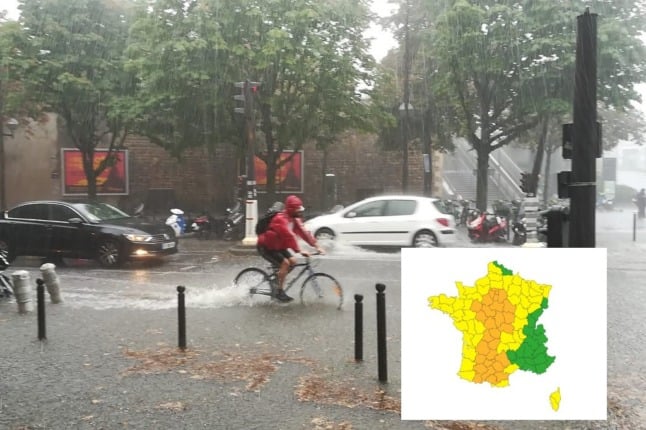After an unusually cool and damp July and August, France has been basking in temperatures up to 31C over the past week.
However Wednesday sees 32 départements, roughly a third of the country, placed on alert for thunderstorms with torrential rain, the possibility of localised flooding and hail in some areas.
🔶 32 dpts en #vigilanceOrange
Restez informés sur https://t.co/rJ24zzmmy4 pic.twitter.com/mrCIM8XUi0
— VigiMétéoFrance (@VigiMeteoFrance) September 8, 2021
The storms are predicted to hit on Wednesday afternoon and evening in the départements of Essonne, Hauts-de-Seine, Seine-Saint-Denis, Val-de-Marne, Val-d’Oise, Allier, Aude, Ariège, Aveyron, Cher, Corrèze, Creuse, Dordogne, Eure-et-Loir, Haute-Garonne, Gers, Indre, Indre-et-Loire, Loir-et-Cher, Loiret, Lot, Lot-et-Garonne, Nièvre, Hautes-Pyrénées, Sarthe, Paris, Seine-et-Marne, Yvelines, Tarn, Tarn-et-Garonne, Haute-Vienne and Yonne.
French weather forecaster Météo France is predicting very heavy rain in a short time (40 to 60 mm in three to four hours), as well as hail in places and strong gusts of wind (80 to 100 km/h).
The heaviest rainfall is expected in the northern part of the Aude département and southern Tarn, where 100 to 120mm of rain could fall in three hours.



 Please whitelist us to continue reading.
Please whitelist us to continue reading.
Member comments